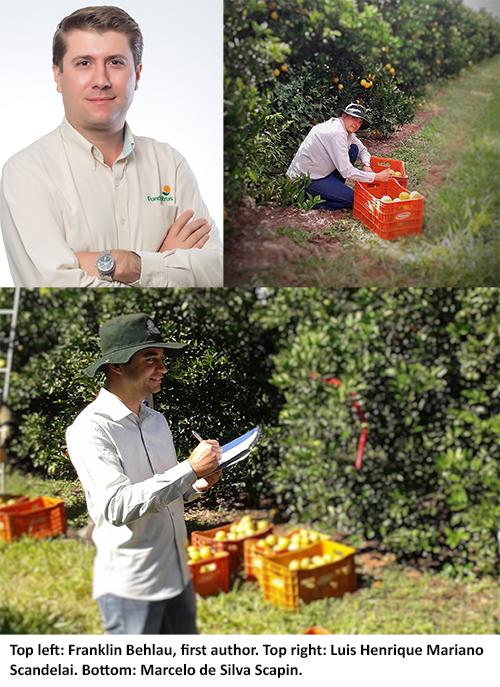
Credit: APS
An important bacterial disease that affects citrus trees and causes lesions, citrus canker has been effectively controlled by spraying copper. However standard management techniques involve spraying excessive amounts of copper and water without consideration for the size of the trees.
“This technique resulted in a waste of resources as well as higher costs, detrimental environmental impact, and risk for development of copper resistant strains,” explained plant pathologist Franklin Behlau, who recently published an article discussing a more sustainable approach to managing citrus canker.
Behlau and his colleagues showed that it is possible to control citrus canker by spraying much less water and copper. “By adjusting both copper and water usage based on the volume of the citrus trees without affecting the quality of disease control, we have taken an important step to a more economically and environmentally sustainable citrus industry.”
This research was conducted in a field trial carried out during two seasons in a commercial orchard of Pera sweet orange in Brazil. This is the first study to show that citrus canker can be managed with such a small amount of copper and water. It also identified the minimum copper deposition on the treated surface per spray necessary to protect against the disease.
“The impact for the citrus industry is huge. By using the most efficient treatments identified in our study, growers can save up 80% in the amount of copper and up to 60% in the volume of water used annually to manage citrus canker,” explained Behlau. “By using less active ingredient, growers can prevent accumulation of copper in the soil and reduce the long-term effects that it may have on the development of the root system and the tree canopy.”
In addition to studying citrus canker, scientists in the São Paulo state and the West-Southwest Minas Gerais state have been studying the most important diseases and pests that threaten the Brazilian citrus belt. Recent findings have been incorporated into the orchard management routine by producers, resulting in a more conscious and balanced production system.
“Our research, and the other research coming out of Brazil, can contribute significantly to a more sustainable citrus industry not only in Brazil but throughout the world. These results can help meet the global challenge of using fewer conventional pesticides in agriculture.”
###
For more information, read “Spray Volume and Rate Based on the Tree Row Volume for a Sustainable Use of Copper in the Control of Citrus Canker” in the January issue of Plant Disease.
Media Contact
Ashley Bergman Carlin
[email protected]
Related Journal Article
http://dx.




